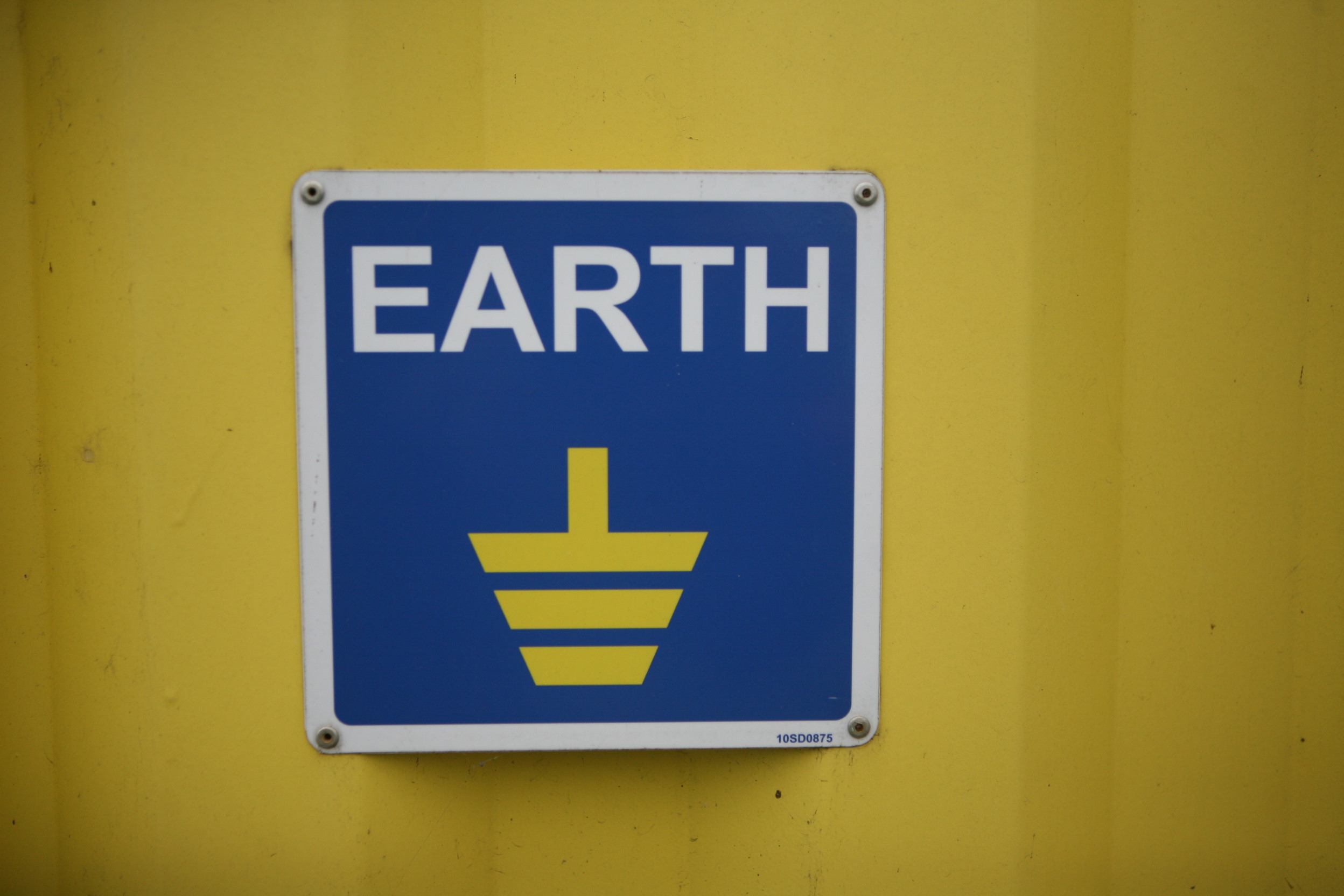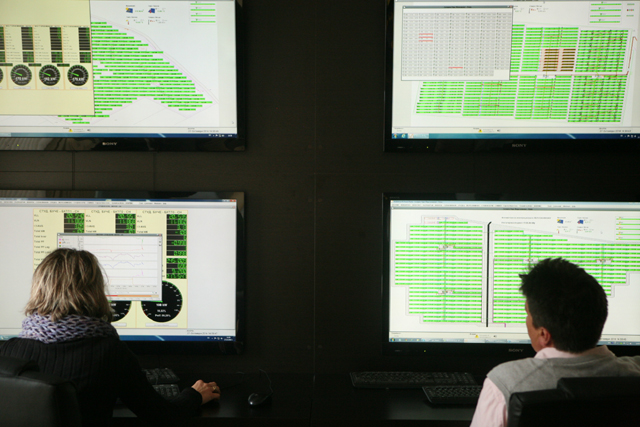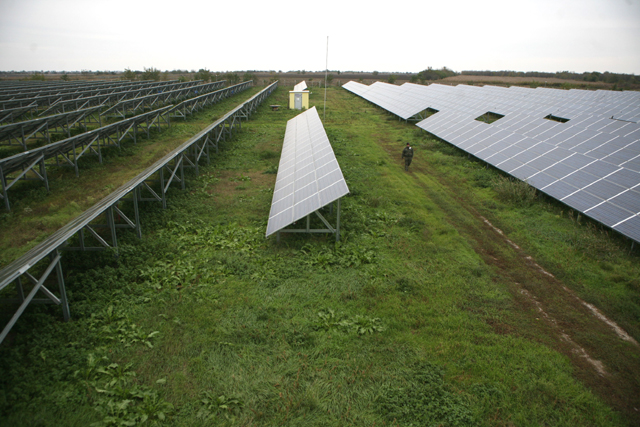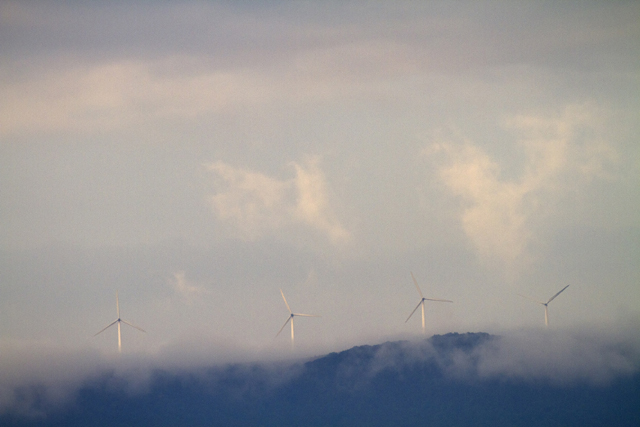
Photo - Ivo Danchev
Bulgaria is among the few European countries that have announced the achievement of the objectives of the "Europe 2020" strategy on renewable energy. At the same time, the sector is said to be in crisis and unsustainable. Our report
According to official figures, Bulgaria has fully achieved – and well in advance – the objectives of the "Europe 2020" strategy on the consumption of energy from renewable sources. At the same time, the sector is facing crisis, administrative confusion, and possible disaster – unless a long-term, sustainable strategy is quickly found.
This is the paradoxical situation of renewable energy in Bulgaria, suspended between a fast, tumultuous, and fruitful development, a present of uncertainties and rough adjustments, and a future that is yet to draw.
A promising start
"In 2007-2008, when we began to study investment opportunities, the field of renewable energy appeared full of opportunities despite the risks and challenges". In his office in the central square Narodno Sabranie, overlooking the Aleksander Nevski Cathedral, American entrepreneur Kenneth Lefkowitz, active in the Bulgarian economy for two decades and vice president of the Association of wind energy producers in Bulgaria, is telling me about the first steps of the sector in the country.
"At the time, it was an underdeveloped sector. However, there were good prospects thanks to the objectives of 'Europe 2020', which required Bulgaria to make progress in the development of green energy. And – do not forget – before the crisis the investment climate in the region was very high".
The sector was virgin (with the exclusion of hydro-power), long-term prospects were guaranteed for by European objectives, investment money was available – these were the promising conditions at Bulgaria's entry into the European Union on January 1st, 2007.
In June of the same year, the socialist-led coalition government launched the first legal framework to regulate the industry. As in other countries, the law provided generous subsidies in the form of preferential prices, long-term contracts (20-25 years), and priority, guaranteed purchase of green energy.
A fast, chaotic growth
"Investors, especially foreigners, were quick to show interest. Many projects were unrealistic though, stemming from the speculative fever that affected Bulgaria at that time rather than from a sustainable vision". In a crowded café in the Bulgarian capital, Georgi Stefanov, expert on energy and climate change for WWF Bulgaria, describes that period as characterised by a very "generous" attitude by the state, but also confusion and poor coordination between the institutions responsible for managing and supporting the development of renewable energy.
"As the months passed, we arrived to a paradoxical situation, in which Bulgaria's environmentalist community had to fight against the construction of solar power plants and wind farms. Projects were often planned – because of the lower cost of land acquisition – on protected, sensitive areas, such as those protected by the European network 'Natura 2000'". The contrast between environmentalist NGOs and investors was remedied in the following years thanks to a discussion table created between the parties.
Despite the lack of a clear strategy at the central level, the sector experienced a fast-paced development, especially for wind farms and solar energy (and, to a lesser extent, for new hydroelectric power plants), with the peak of installed capacity being reached in 2012.
Bulgaria, leader in South-east Europe
Meglena Rusenova, president of the Bulgarian photovoltaic association, stresses the positive role and potential of green energy in Bulgaria today. "In a few years, an innovative, high-tech, and environmentally friendly sector was created from scratch and with private capital only. Jobs were created for young and qualified personnel, otherwise condemned to leave Bulgaria, and the country itself has become a leader in renewable energy in South-East Europe, with the ability to export its know-how also outside its borders".
In the office on Vitosha,a busy pedestrianstreet in the heart of Sofia, Rusenova outlines the growth of renewable energy in Bulgaria in figures. Over 4 billion Euros (including 2 from abroad) were invested from 2009 to 2012; over 1,900 companies are active today, with at least 10,000 employees (2012 data). The installed capacity now exceeds 2.2 GWh, and estimates for 2013-2014 show that 13% of electricity consumed in Bulgaria was produced from renewable sources.
To understand more about the development and local impact of renewable energy, we visit the solar plant of Mokresh, a sleepy village nestled on the plain that borders the banks of the Danube, in northern Bulgaria. We are accompanied by engineer Sasho Dimitrov, director of the "Greentech Engineering Solutions", a company active in the construction and operation of renewable energy facilities.
"Mokresh can be considered a medium-large plant, with an installed capacity of 4 MWh, enough to provide energy to three or four villages in the area", says Dimitrov as we stroll between long rows of panels.
The amount of sunlight, the possibility to attach comfortably to the network, the status of the land – these are the main characteristics to be assessed in the design phase. "The energy produced here is consumed on the spot, without the need to transform the current and use the high-voltage grid. This is also an important element when assessing the impact of renewable energy".
The boom in renewable sources allowed Bulgaria to reach the share of green energy (not just electricity) on the total consumed, fixed by the EU at 16% by 2020, eight years in advance. According to the Bulgarian Institute of Statistics, the share had already been exceeded (16.3%) at the end of 2012 – a result that only Sweden and Estonia can claim so far.
Success at unsustainable costs?
If few question the positive environmental impact of new power plants, the government's permissive attitude towards the industry has given rise to growing controversy on cost and efficiency of subsidy policies.
The mandatory purchase of renewable energy from the distribution network is one of the elements that, in recent years, has led to significant growth of the final price of the energy consumed by households and businesses. The difference with the market cost is covered by the National Electric Company (NEK), which turns losses, at least in part, on the final consumers.
In Bulgaria, which remains one of the poorest members of the European Union, the rise of the bills has created discontent and social tension which peaked in February 2013, when the centre-right government – led by the charismatic Boyko Borisov – was forced to resign because of street protests against the "crazy bills", amid allegations of speculation against the distribution companies (with foreign capital) that manage the power grid.
"Like other countries, to catch up in renewable energy, Bulgaria relied on preferential prices, and with good results", argues in his office Dan Berg, director of the Bulgarian branch of the European Bank for Reconstruction and Development (EBRD), which in recent years has funded major energy projects in Bulgaria, especially within its Sustainable Energy Initiative. "Unfortunately, this coincided with the peak in costs of solar panels and wind turbines. This means that the subsidised prices are too high to cover the high production costs". At the same time, according to Berg, the sharp economic slowdown and falling demand have quickly made renewable energy "too big a slice of a smaller and smaller cake", weighing so much more on the final price of the energy basket.
Despite the ten-year contracts signed, Sofia started to study possible ways to limit the growth in costs, while NEK accumulates debt, which is estimated to reach 4 billion leva (2 billion Euros) in 2015. Citing the rising costs and the early achievement of the objectives, subsidies to renewable sources were gradually cut, and a moratorium on new installations was imposed in August 2012. In July 2013, the government decreed a halt to the guaranteed prices for new power plants. At the end of 2013, the new socialist government attempted to impose a 20% revenue tax on producers of wind and solar energy, which was however contested by the President of the Republic and declared unconstitutional in August 2014.
"We have gone from excessive permissiveness to full-out obstructionism. Formally, contracts have not been touched, but more and more punitive, retroactive measures against renewable energy operators have been taken. This 'elastic', that has characterised other countries in the region, in Bulgaria has taken paroxysmal traits, and that is likely to have very heavy consequences for the future of the industry”, worries Lefkowitz. "The state has abdicated its monitoring role, allowing the creation of an often inefficient system. Now, it tries to make up by charging the cost of errors to investors".
Who takes the bill?
According to Georgi Stefanov, "the rising cost of energy does not depend on renewable sources only. Coal plants have ten-year contracts and subsidies too, not to mention the huge sums spent on projects never carried out, like the nuclear power plant in Belene. Yet, popular anger is directed almost exclusively against green energy". According to the WWF expert, however, the real problem lies in the lack of long-term vision: efforts to give life to the "green" sector lacked the courage to close or restructure old, inefficient infrastructure, like many thermo plants built in the socialist period – plants that provide jobs, but cost, pollute, and have no prospects in the European energy market.
Even the triumphal figures on the achievement of the "Europe 2020" objectives, used by the government as an argument to justify the change of pace, are questioned by many critics, as significant part of the result is due to the massive use of firewood for heating homes. For Stefanov it is "another paradox". "The use of outdated technologies, and the very 'energy poverty' of the country are passed off as a sign of progress".
With the institutions of Sofia limited by political instability, it is difficult to see today a way out of the current impasse. "The situation is complex: without a clear legislative framework, many companies are at risk of bankruptcy. The sector should be restructured from the ground up, otherwise it will be a disaster", complains Lefkowitz, who suggests two strong elements to start over: a discussion table between institutions and operators of renewable energy, and full transparency in the sector. "We need to create a true energy market, which in Bulgaria does not exist yet".
For organisations of the sector, the social cost of energy cannot be addressed by imposing artificially controlled prices, was the answer given by the authorities after the outbreak of the protests. "Subsidy policies should be reversed: we should focus on the most vulnerable consumers, and not distribute cash indiscriminately, to both green producers and those with high environmental impact", says Rusenova. "In Bulgaria energy costs much less than in the rest of Europe. The real problem is to restart the economy and increase the income of families".
For Rusenova, the problem in the energy sector is purely political. "Today Bulgaria is totally dependent on Russian imports and major infrastructure. The elite does not want local competitors, flexible and private, because they are difficult to control and provide fewer opportunities for corruption".
In search of a sustainable model
"It's obvious to everyone that the system as it is now is not sustainable", says Berg. "Raising prices, however unpopular, is inevitable, maybe while supporting vulnerable consumers. We could remove from the system some old plants that do not meet European environmental criteria, and clarify important issues that weigh on NEK, like the responsibility for the project, never carried out, of the Belene nuclear power plant". Once removed the main obstacles, concludes Berg, the actors of the energy system should then sit down at the table and find a new balance, including on pricing.
The new centre-right government has announced a series of measures, which are expected to partially cover the financial gap in the industry: among other things, all revenue generated from the sale of quotas on greenhouse gas emissions will flow into the NEK, to limit the costs related to the purchase of renewable energy by the national power company.
In the long run, however, the primary source of concern is the total lack of vision. "From my point of view, this is the most serious problem. Simply, there is no strategy that looks beyond 2020", says Stefanov. "Bulgaria is a small country with a relatively low energy consumption. In the coming decades, with interventions calibrated to the characteristics of the country – such as the great potential of biomass – it could really become an example of total transformation of the energy model. Our goal is to shut down all traditional sources of energy by 2040". A "very ambitious, but feasible" goal, concludes a convinced Stefanov.
blog comments powered by










